Cart
You have no items in your shopping cart
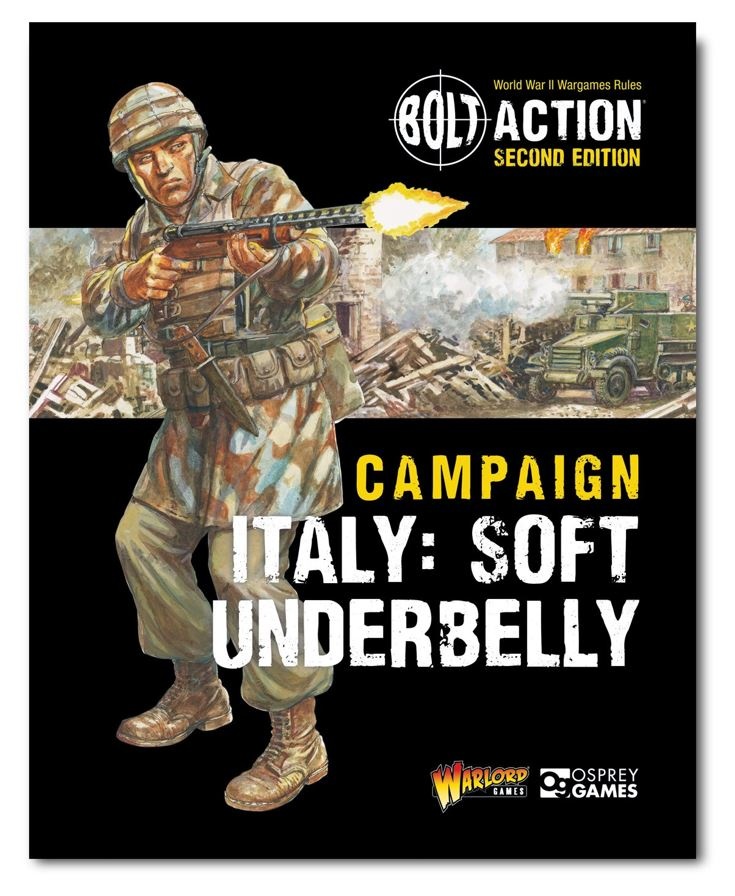
The review of the Bolt Action campaign book for Italy: Soft Underbelly.
Bolt Action campaign ‘Italy: Soft Underbelly’ review
Welcome to my review of the Bolt Action campaign book, Italy: Soft Underbelly. This review will focus on how the campaign book plays, rather than historical accuracy or context of events that it depicts.
Simply, anything you need to play a fun campaign with the Bolt Action rule set of course! Except for the miniatures. You’ll still need to get those yourselves.
The book covers the first six months of the Allied invasion of Italy in 1943. Starting with Operation Husky and ending December 1943. If you’re looking for the famous battle of Monte Cassino, you’ll have to wait for the book covering the war in Italy in 1944.
There are thirteen scenarios in the book, spread over its 77 pages as well as new units, new Heroes, and new Theatre selectors.
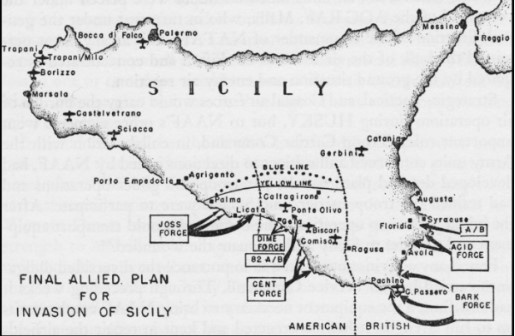
Each of the thirteen scenarios has some historical background detailing which forces were involved and the events around the battle.
There’s a good mix of scenarios here that will keep the campaign feeling fresh. Whilst, at first look, some of the scenarios look like battles you’ll find in the main rule book, each has a twist which makes them something different entirely. These twists can be in how to score victory points or how the forces are set up, for example.
The scenarios range from having elite commando units attacking enemy defenses in the dead of night to a platoon of tanks trying to cross a river to trying to capture a village on a 4x12 foot table.
Some of the scenarios need you to field up to four different forces from a variety of theatre selectors. Even mixing in different nations like US and British or Italians and Germans in some cases.
In some cases, one or both forces are defined by the scenario. A detailed breakdown of each unit is given and that’s it.
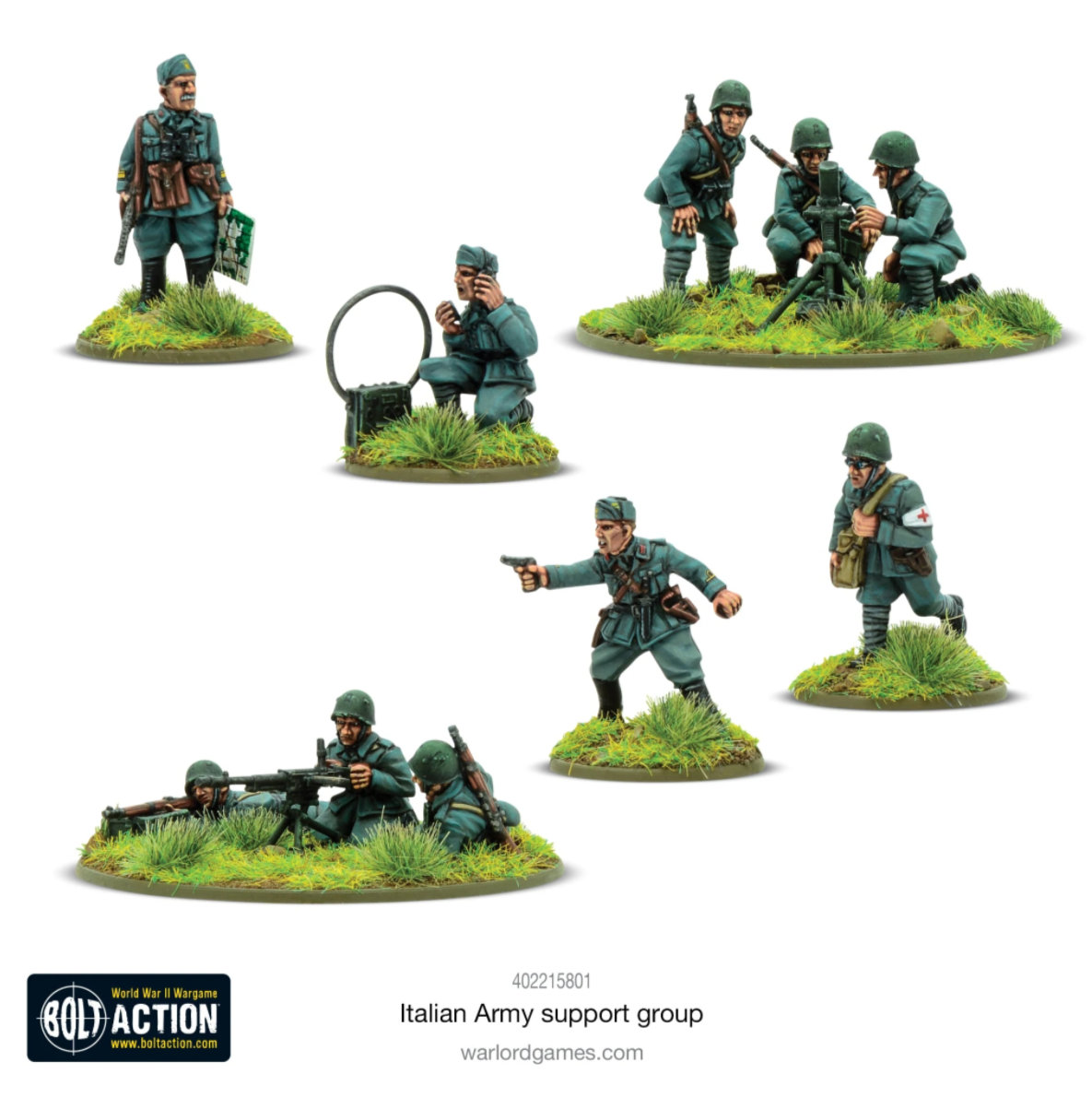
As someone who likes to make army lists, I’m not a fan of pre-defined forces, but it doesn’t happen often enough that I would stop playing the campaign. On the other hand, scenarios like these drag me kicking and screaming out of my comfort zone. Which is probably a good thing because we shouldn’t play with the same toys over and over again.
Some of these premade lists do make me wonder who can field them, though. For example, there’s a scenario where seven Panzer IV’s have to face off against a US force with eight M2A1 howitzers and three 37mm guns. Even with proxies, I don’t know many people who can field eleven artillery pieces and their crews.
That said, I do think these scenarios can be a load of fun.
When we get a new book, lets be honest, the first place we go? The pages of new toys!
There are a whopping fifty-five new units, and that’s not including the Heroes, so we’ve a lot to unpack here.
Italians get eight, Germans seventeen, the US gets ten and the British a total of twenty new units to play with.
If you, like many, think that the British get too many good units, then this book won’t change your mind. As a primarily British player, I agree that the Brits have a few units which are just a bit too good for their points, and with the flexibility of the national characteristics, they become just downright filthy.
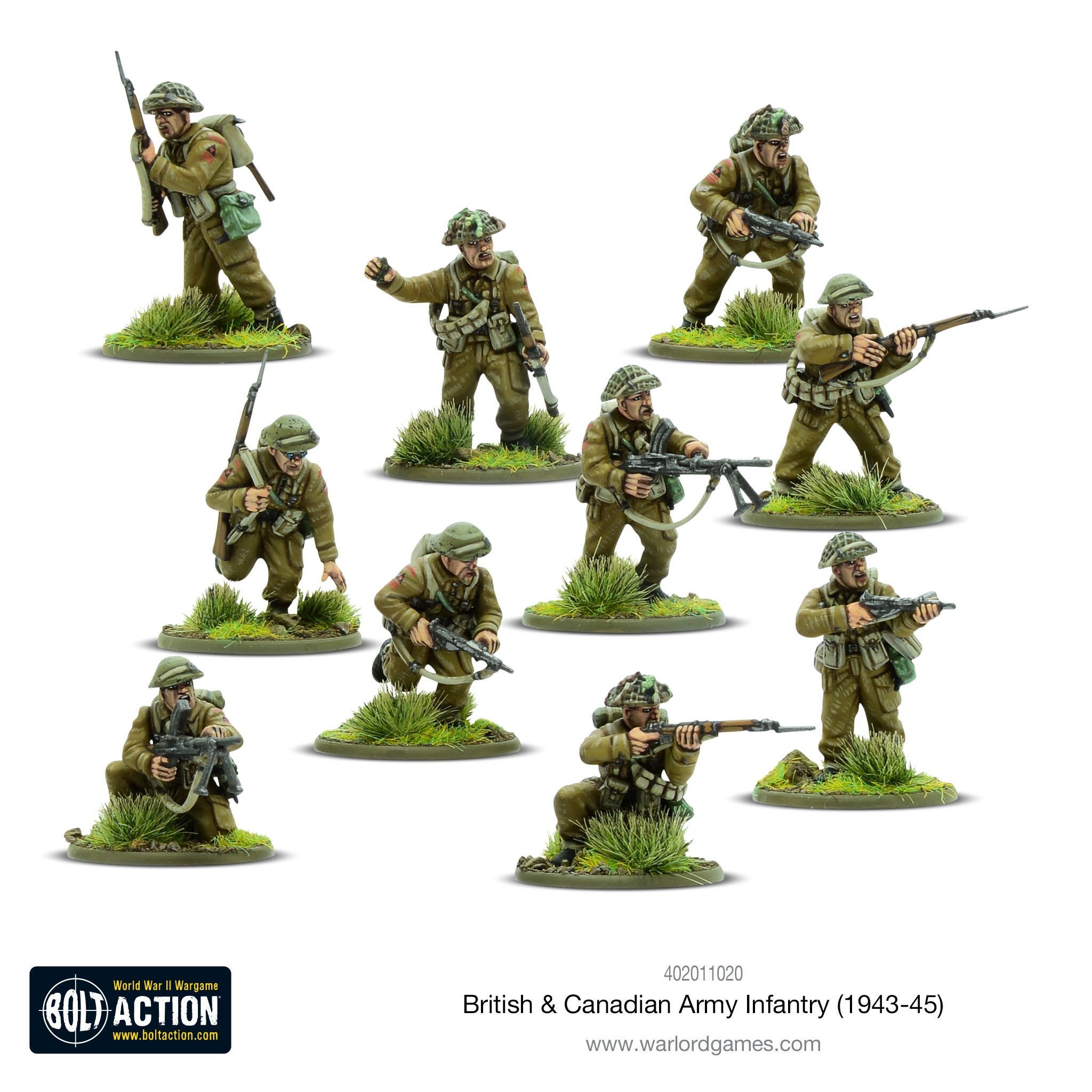
A new national characteristic allows players to re-roll all order tests unless it was a FUBAR, and new lieutenant choice has an upgrade which allows all regular and veteran infantry sections to re-roll their morale checks. Individually, this might not have been all that bad, but combined, things start to get a bit too good for the Brits.
All in all, the Brits get a large selection of new infantry options. There’s the Guards, both Scots and regulars, a new Irish infantry section, an Indian infantry section and a Canadian section.
The special forces also get expanded quite a bit. Airborne divisions get a Royal Engineer section and a captured MG42 section.
The SRS sub-section makes an appearance. We get Popskis Private Army with a prototype jeep that carries a flamethrower and also the Commandos also get expanded with even more special rules making them nearly as expensive as the SAS infantry sections.
The new US units seem to look for both ends of the competence scales. On one side we have the highly elite FSSF and Darby’s Rangers and on the other we have the very easily intimidated Rear Echelon Squad that FUBARS on a roll of any double when taking an order test.
They also get expanded with some Armoured infantry squads, including one with two LMGs as standard, an airborne engineer squad and a reconnaissance jeep.
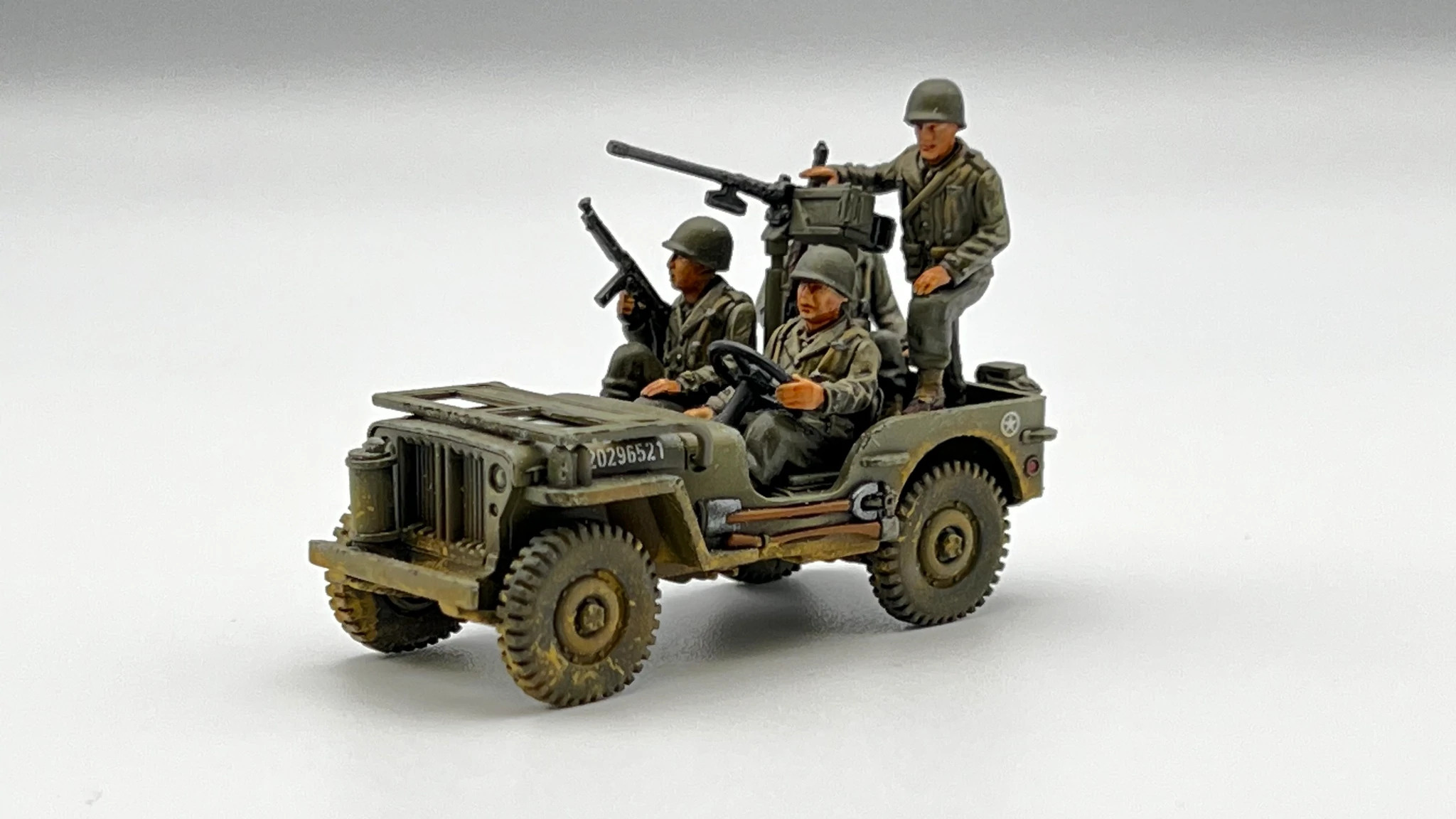
The Germans get an early model of the panzerfaust, the panzerfaust 30s. It’s a couple of points cheaper, but it cuts the range in half. I’m not sure if the trade off is worth it, but if you’re strapped for points and desperate for something that can hurt a tank, they will do the job.
Most of their new infantry sections feel they are just units we already know but with less options. I say most because I do like the Herman Göring Division Panzergrenadier Squad. They are a point cheaper than regular troops but they have a gambling man’s version of the Green rule. They start out regular but after the first casualty they have a 50% chance of staying regular, a 33% chance of becoming inexperience and a 16% chance of upgrading to veterans.
The Germans also get a new anti-tank gun, or should we say, anti-tank rocket carriage in the 88mm Rackenwerfer 43 Puppchen. This is basically a Panzerschreck with a longer ranger and a gun shield but with the downside of being fixed. Still, cheaper than a Panzerschrek team and more resilient so it might be worth having a look at.
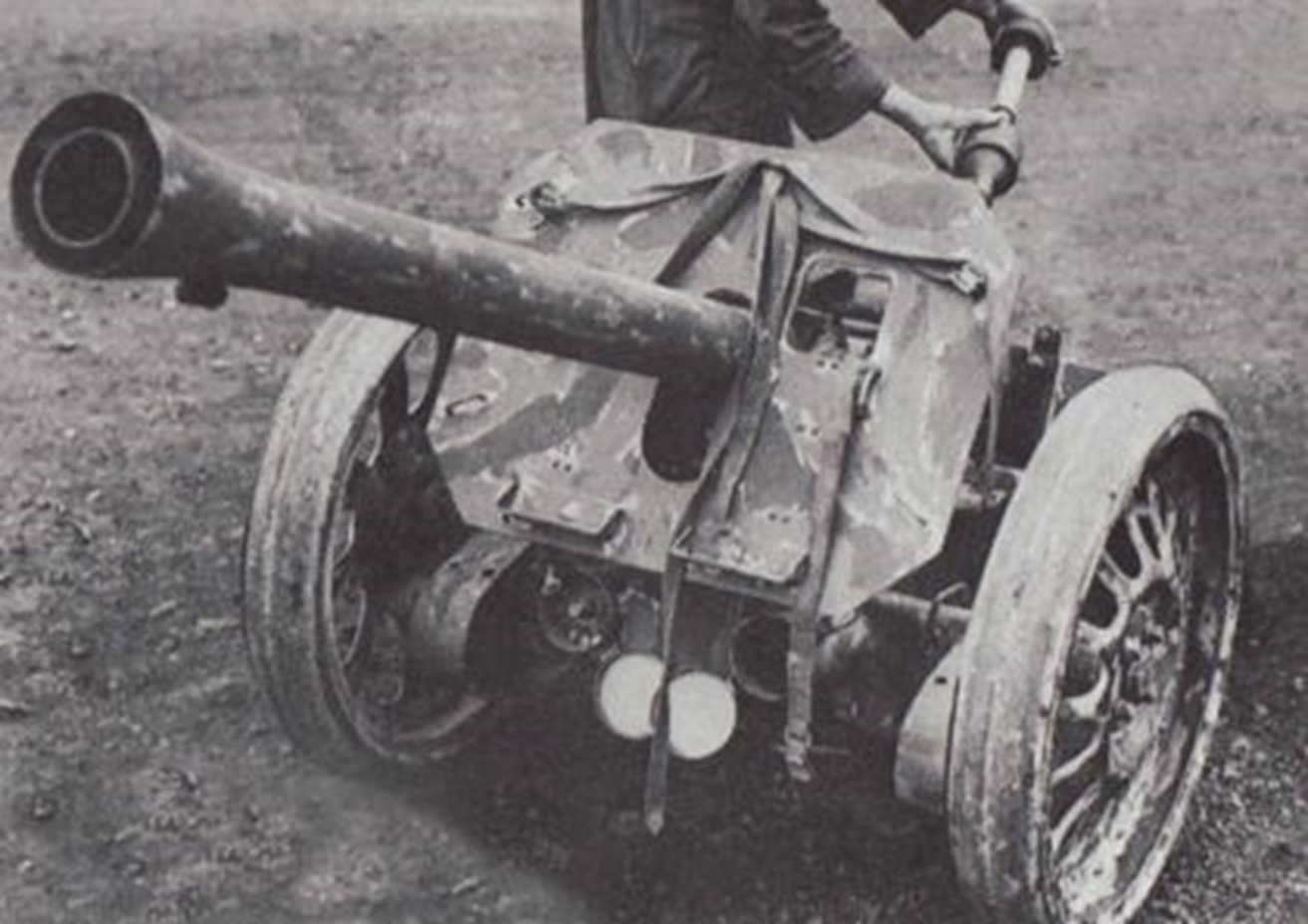
No puppies getting shot out of this thing.
They also get new StuGs in the form of a bunch of captured Italian tanks. The captured Semovente Assault guns are turned into the StuG M41 and M42 while the Ansaldo was converted to the M43. The M41 and M42 are a nice, cheap assault guns with a larger HE than a normal medium anti-tank gun would fire. The M43 has a super heavy AT-gun making it the cheapest Super Heavy Anti-tank vehicle option for the Germans.
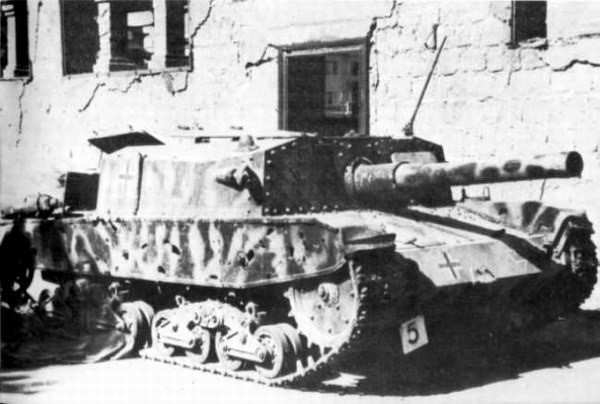
StuG M43: Why make your own when you can simply take other people’s toys?
Last, and sadly, also kind of least, the Italians.
For a book about invading Italy, the Italians don’t really get much new stuff. Not that what they get is bad (except the Divisione Costiera but they don’t count as they are supposed to be bad) but it feels weird that they get so little.
So, about those Divisione Costiera, they are the answer to the question of ‘how can we make Shirkers worse?’ Every time they are hit, you roll a dice. On a 1 or 2, they get up and leave. Which would be hilarious if losing squads would not be such a problem for Italian armies. Still, 15 points for 5 guys is a steal for those wanting to live life dangerously.
On the other hand, Italian players now also gain access to two new Guastatori sections. The Guastatori Destruction Group fill the role of assault engineers and with the option to take two flamethrowers, there’s a very good chance that they’ll kill what they shoot at.
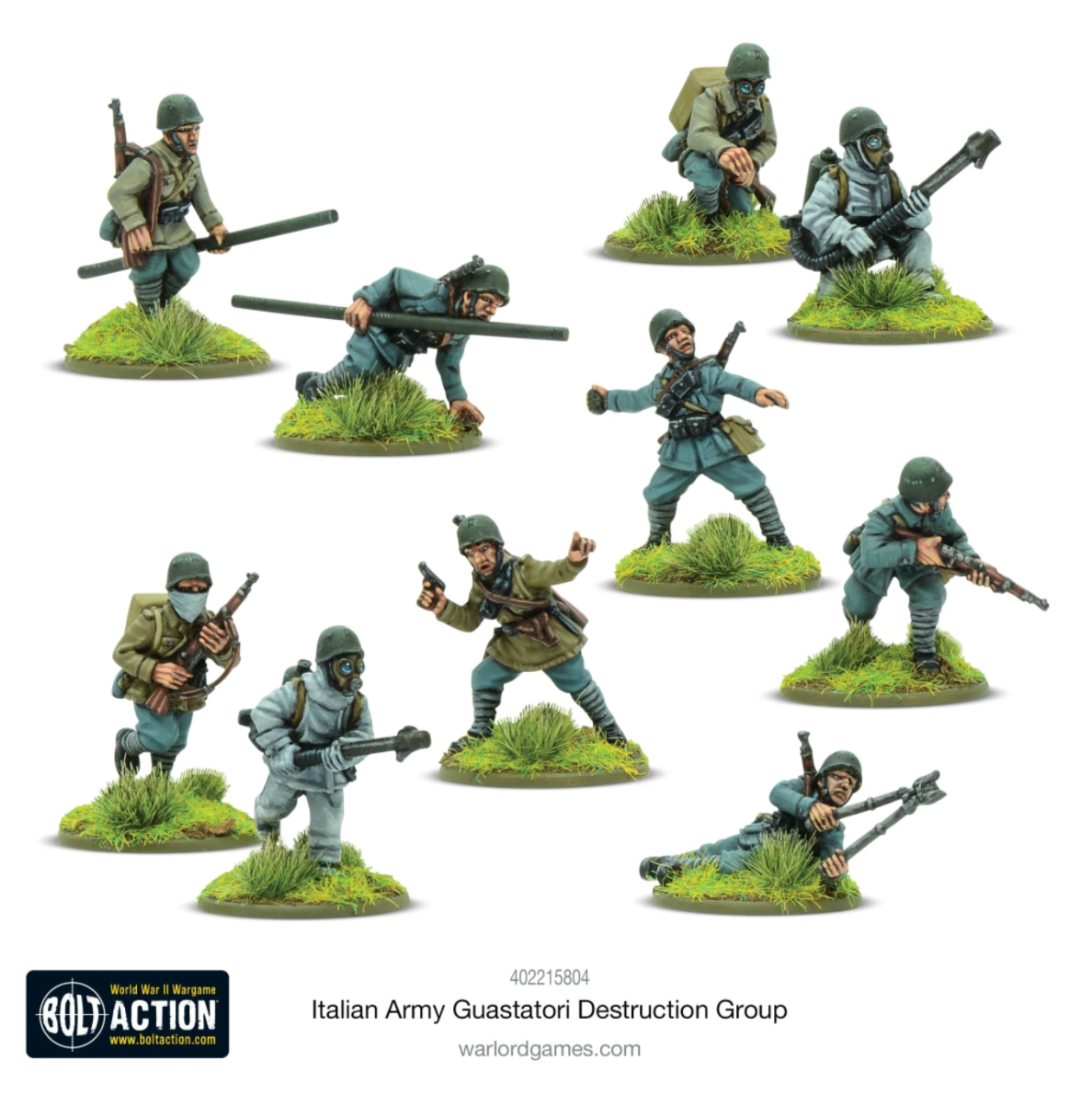
The Guastatori support group is a fun, but slightly expensive support unit housing an LMG and light mortar. The mortar may fire at a different unit than the rest of the squad making it a decent unit for harassing fixed weapon teams while still being able to put pins on other units at the same time.
Another boon to the Italian army list is the introduction of the X Arditi. These are the Italian counterparts to the British commandos. They are good at outflanking and painful in assault. They come with a rule that allows them to remove d2 pins instead of 1 when passing an order test. I think that may be their best rule considering the penalty Italian units get when they have lost more units than their opponent. No pins means no test, and that makes everyone happy.
The Sahariana Spa-Viberti AS42 also makes an appearance. It has quite a few weapons and a rule that allows it to move through rough ground but considering the cost and it being a soft skin, I don’t see it being used much over other Italian armored cars.
Each nation gets four famous faces from the campaign, aside from Italy who only get two. Again, not sure why they get less than the others considering they were defending their country from invasion, but it is what it is.
The Italians get two of the worst of these heroes. One is a major general that allows the player to ignore their army’s special rule that probably should never have been there in the first place, and the other is a tank commander driving around in a R35. Considering the speed of the R35, I use the term ‘driving’ in the loosest possible sense.
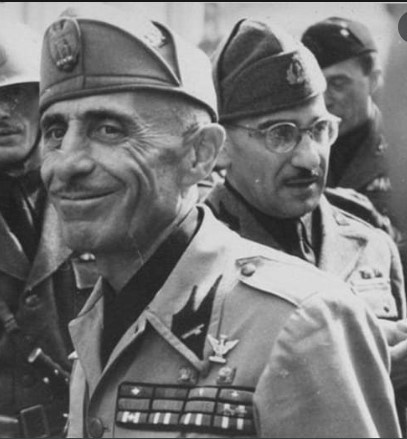
Enrico is disappointed with Italian representation.
The German commanders are mixed. Two are very good, while the other two seem very over costed.
The most over costed (but very funny) Hauptman Heinz Paul Adolff is a captain who can be upgraded to be accompanied by a truck. Filled with explosives. That he can detonate after he has made an advance or run move. It will leave a large crater, but you do pay nearly 200 points for this one time trick. And since it’s a soft skin, I don’t think it will get the chance very often.
The British heroes don’t seem to add all that much for the 200 points you pay for them. So they don’t get the best of everything for once!
That honor goes to Lt General George S. Patton Jr. He is the most expensive Hero in the book, but not by much and he brings a heck of a lot to the table. All non-ranger infantry units may make the ranger move. All outflanking units can deploy 12” further than normally allowed and he makes units within his command range re-roll failed order tests. Considering his rule does not exclude re-rolling FUBARs, I guess that means those units can re-roll that as well. All in all, he brings a lot to the table.
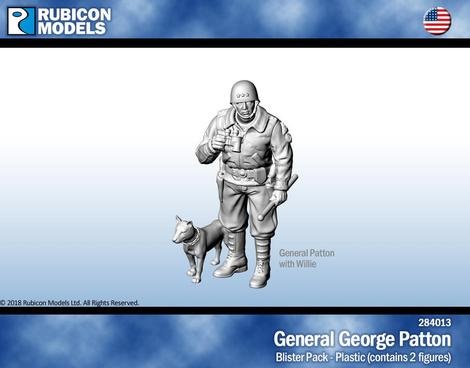
The other heroes are decent as well but no one is as strong as Patton!
There are thirty-four new theatre selectors, so I won’t be going into them in detail but we can take a look at some of the special rules.
The Italians, as usual, get the worst of it. ‘Defeat after defeat followed by Impending Defeat’ replaces the Avanti Savoia rule. It is a slightly toned down version to mess with Italian morale, but one that does not give you a bonus either. They also have a new ‘Poor Officers’ rule that makes the officers almost useless. There is a slight bonus for a few units of a specific type, but that doesn’t make up for the others.
The British get several new National Characteristics. These allow the player to make the following armies:
The Germans and US don’t get any special rules with their theatre selectors so not much to say about them here.
All in all, I like this book and I’m not just saying that as a British player.
There are some interesting scenarios in there and I think most armies get some nice new units to play around with.
I do think the Allies got far more attention than the Axis forces though, with the British getting the most. While the Germans get almost as many new unit entries as the British, most of these feel uninspired or simply copy/paste versions of existing units with less options.
For the next book, I hope the Italians get the love they deserve. They are an interesting army gaming wise, and even historically they had many units that went above and beyond. Warlord tried to compensate that somewhat by including the Forza D’Animo army rule but they are still hampered because they have an army rule that says that Italian morale was bad and their officers were incompetent. It just feels needless to do so for this one army while many armies suffered from such problems too at some point. While it may make some sense historically, it does not make for an enjoyable battle on either side.
Comments
Be the first to comment...